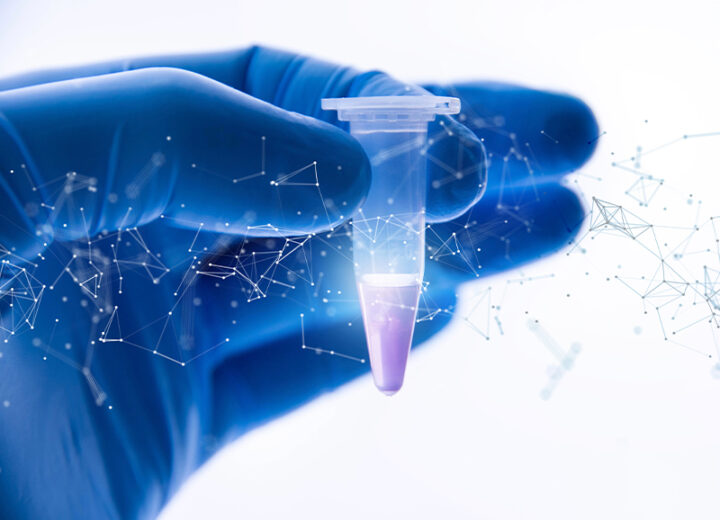9 April 2025
Enzyme research products and the role of a manufacturer

Biotech saw researchers harness biology to make incredible breakthroughs across the life sciences industry. From treating diseases to creating comprehensive testing and identification techniques like genome sequencing.
As biotech has developed over the past five decades, enzymes have become an increasingly key ingredient in this field. As such, the need for recombinant enzymes has also increased. Moreso, the ability to create enzymes in a controlled manner.
Researchers have developed tools to help them study, adapt, evolve and utilize these enzymes, such as high throughput experimentation or enzyme design and engineering. Although many of these tools have experienced significant development in the past two decades, expression systems haven’t undergone the same advancement. As such, there are still challenges that need to be overcome regarding the efficient and effective production of enzymes for research.
In this blog, we explore this research, and the role of innovative manufacturing techniques in producing the enzymes researchers need.
Why we need recombinant enzyme research
Natural, native enzymes may play a key role in medicine, healthcare and life sciences R&D, but these resources are inherently scarce, or may be impossible to access in a usable form. This makes it unsustainable to rely on them to produce global healthcare solutions.
So, when researchers identify enzymes with desirable functions, like a certain gene sequence that enables skin growth, their goal is first to understand it, and then to determine how to reproduce it for usage at scale.
Understanding how natural enzymes work gives researchers greater insight into what possible applications they can be used for. Or, what role exactly they play. Does it perform a direct function, or is it an ingredient that contributes to the complete solution? For example, how RNA polymerase is used to catalyze the synthesis of mRNA strands used in COVID-19 vaccines.
Researching enzymes is also important for understanding how to effectively reproduce them. How can we curate a controlled environment, or make the process more efficient? Research may also reveal ways to make enzymes more effective for a specific use case. For example, is there a way to alter the gene sequence to amplify a certain characteristic, reduce others, and generally improve functionalities?
In short, enzyme research empowers the design of valuable enzymes. Equally, this allows manufacturers to produce recombinant enzymes, providing a more consistent, sustainable and cost-effective source of enzyme products that are suitable for a wide range of research and commercial applications.
Read about the real-world impact of accessible enzyme development
How Cocoon supports enzyme research
Our role as enzyme manufacturers is to support researchers to produce these enzymes. Like the craftsman that hones your tools, we find new ways to express enzymes, that improve their functionalities, and optimize the production process for researchers.
In particular, two key areas we support with are affordability and effectiveness.
Affordability
In terms of price, there has been a resounding push to lower the cost of various treatments, such as mRNA therapeutics and genomic testing or sequencing.
The reason these applications are expensive is due to the enzyme components required, which are produced using energy-intensive and often unscalable processes. And the result is that people often can’t afford the treatments they need.
If you have a known enzyme-based solution, but the enzyme price point is a bottleneck to your research or to the end product’s accessibility, we can use our platform to reduce this hurdle.
How Cocoon supports
Our CrisBio® platform uses cocoons as natural bioreactors instead of resource-intensive and expensive mechanical bioreactors.
A recent project saw us do this for a client with Thermostable Inorganic Pyrophosphatase. We simplified its production to produce a product that was more affordable than market alternatives, while achieving the same level of activity and quality. Equally, it can be scaled from milligrams to large batches with just a couple of weeks’ notice.
How we reduced enzyme costs by >70%
Effectiveness
Regarding effectiveness, there are still many enzymes that can’t be produced using traditional expression systems. Despite this, there has been little development done to advance expression systems or create new ones.
How Cocoon supports
If you’re in product development stage, but the enzyme you’re working with is failing to express in traditional systems used by CROs and laboratories, we can help.
CrisBio® is highly optimized to produce complex enzymes. The multi-cellular environment created by the chrysalis stage of the Trichoplusia ni provides optimal conditions for complex folding and post-translational modifications needed to produce these kinds of enzymes.
We’ll go through a high collaborative process with researchers to produce a proof of concept using this method.
- Understand your pipeline of work and the application
- Produce a proof-of-concept product
- Analyse the output and identify optimizations
- Refine the proof-of-concept by incorporating the identified improvements
- Develop the downstream process specific for a given protein, scale up production and become a manufacturing partner
Read more about our enzyme production process
Here’s an example: we recently worked with a client who wanted support producing a complex enzyme. The activity of the protein produced during the proof of concept was ideal, but a lot was lost during purification. We designed a new version of the enzyme harboring a solubilizing tag, which helped to improve post-purification outputs.
In summary, our goal is always to help our partners make recombinant protein products that support their research as effectively as possible. Whether this is by reducing costs, or improving expression rates, we’ll work together to achieve the desired result.
Learn more about enzyme development with Cocoon Bioscience, here.


